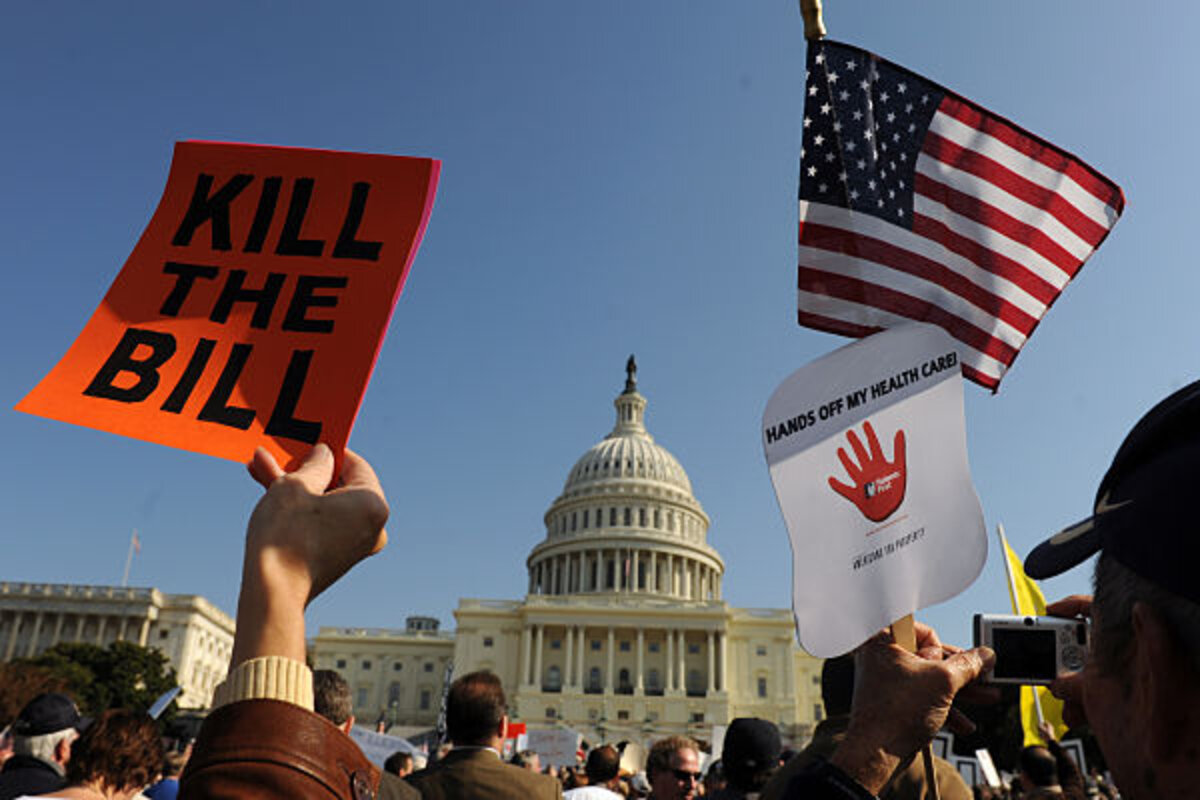Obama healthcare reform won't crush small business. It will help.
Loading...
Critics of health reform legislation assert that it would crush small business. The National Federation of Independent Business, for instance, insists reform will have “a costly and punitive impact” on these firms.
I do not understand this argument. Small businesses face huge disadvantages in today’s insurance market. Unlike their larger competitors, they can’t self-insure or bargain for low premiums and their small risk pools make them highly susceptible to huge rate hikes if just a single employee gets sick. The health bill would help level that playing field.
Many—though certainly not all--small businesses would come out ahead. There are lots of health bills out there, but let’s look at President Obama’s version. In it, small businesses would get tax subsidies for offering insurance to their workers, low- and some moderate-wage workers will get their own subsidies to purchase coverage (and some may even be newly covered by Medicaid). Small firms would get access to exchanges that should make it less costly for them to insure their workers. And, perhaps most important, the bill would take some small steps to control future health costs.
There are some trade-offs. Many firms with more than 50 workers would have to pay a modest penalty if they do not offer insurance. Those with more than 200 workers must automatically enroll all employees in their health plans. But the issue that getting the most attention is Obama's effort to impose an plans. Because small businesses on average pay higher premiums than larger firms, some critics of reform argue that these smaller firms would disproportionately suffer under this tax.
This concern seems wildly overblown. First, the Obama plan is far from draconian. It would impose a 40 percent tax on the value of plans in excess of $10,200 for individual coverage and $27,500 for families. But the tax would not take effect until 2018. And companies with workers whose coverage is more costly due to age or gender or those that are located in high-cost states could offer even more costly plans without being subject to the tax.
Second, according to the Kaiser Family Foundation, the average of a family plan last year was $13,375. Other research that small firms pay, on average, about 20 percent more, so their typical cost is about $16,000—far below the $27,500 threshold for taxable plans.
So while small firms, on average, may be more likely than big companies to pay the penalty, few of them will. And, in any event, none will pay a dime of this excise tax for at least eight years. By then, if the exchanges work out as hoped, premiums should be much more manageable.
At the same time, very small firms (include many sole proprietorships) would be in line for an immediate, extremely generous tax credit for buying insurance. From 2010-2013, these businesses would be eligible for a credit of up to 35 percent of premiums. Starting in 2014, they could get a credit of up to 50 percent of the cost of buying insurance through a state exchange, as long as they pay at least half the premium.
It is easy for critics to pull out individual elements of this vast health plan, rip them as tax increases, and claim, as the NFIB does, that the entire package would be a disaster for small business. But considering the huge labor market disadvantages these businesses face today as a result of their high insurance costs, most of these small firms are likely to be big winners once the dust settles.
.
------------------------------------
���Ǵ��� has assembled a diverse group of the best economy-related bloggers out there. Our guest bloggers are not employed or directed by the Monitor and the views expressed are the bloggers' own, as is responsibility for the content of their blogs. To contact us about a blogger, click here. To add or view a comment on a guest blog, please go to the blogger's own site by clicking on the link above.






